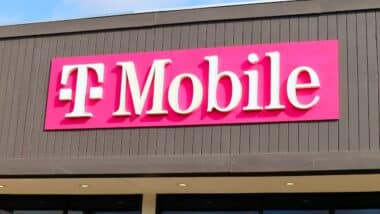Judge Awards $7,500 to Man Harassed by Debt Collector
By Jessica Tyner
 Gulf Coast Collections has been ordered to pay $7,500 as part of a lawsuit settlement with a man who says the debt collection company harassed him by calling him at least 15 times on his cell phone without his permission.
Gulf Coast Collections has been ordered to pay $7,500 as part of a lawsuit settlement with a man who says the debt collection company harassed him by calling him at least 15 times on his cell phone without his permission.
Florida resident Mark Mais accused Golf Coast Collections (GCC) of violating the Telephone Consumer Protection Act (TCPA), a federal law that prohibits companies from calling or texting consumers on their cell phone without prior express consent.
Mais started receiving the phone calls after GCC purchased medical debt he owed to Florida United Radiology, where he owed services of $49.03 from an emergency stay at Westside Regional Hospital. Mais’ wife provided his cell phone number during his admission to the hospital. According to the documents she signed, permission was granted to reach him via phone for payment or other services only, the lawsuit said.
Since Mais didn’t grant permission for the companies to use his cell phone number to collect debt, the question raised in the lawsuit was whether the phone calls violated the TCPA.
The crux of Mais’ TCPA lawsuit was the issue of “express consent” – whether providing your cell phone number to a company is the same thing as giving consent to be contacted on that number.
GCC argued that Mais gave consent to be called when he provided his number during admission to the hospital.
The judge in the case disagreed, rejecting a 2008 FCC ruling that previously defined express consent. The long-standing ruling held that providing a cell phone number to a creditor as part of an application “reasonably evidences prior express consent by the cell phone subscriber to be contacted at that number regarding the debt.”
U.S. District Judge Robert Scola, Jr. said that ruling was inconsistent with the TCPA’s plain language and misconstrued the word “express” with “implied.”
“Although it may be reasonable to presume that an individual, in providing his cell phone number on a credit application, consents to be called at that number by the creditor, such consent is ‘implied’ through the individual’s conduct – – that is, his act of writing down his number on the application. He has not directly, clearly, and unmistakably stated that the creditor may call him, and so he has not given ‘express consent,’” Judge Scola wrote.
Mais was awarded $500 in statutory damages per call violation, which totaled $7,500 for 15 calls. However, he wasn’t awarded his bid to certify the lawsuit, meaning no class action lawsuit was formed.
The ruling is an important one for consumers who have received cell phone calls from debt collectors without their permission. The Mais v. Golf Coast Colleactions ruling suggests that simply putting a phone number on a form doesn’t always mean a person agrees to be contacted.
Have You Received an Unsolicited Cell Phone Call or Text?
If you’ve received a text or cell phone call from a company that you didn’t sign up for, you may have a TCPA legal claim. Learn more today by visiting the Text Message Spam, Cell Phone Call TCPA Class Action Lawsuit Settlement Investigation. After you submit your information, you’ll be contacted by an attorney if you have a case for a free TCPA claim review.
Updated June 7th, 2013
All class action and lawsuit news updates are listed in the Lawsuit News section of Top Class Actions















One thought on Judge Awards $7,500 to Man Harassed by Debt Collector
How long does this go back? I have a debt collector who called and cussed me terribly in 2009